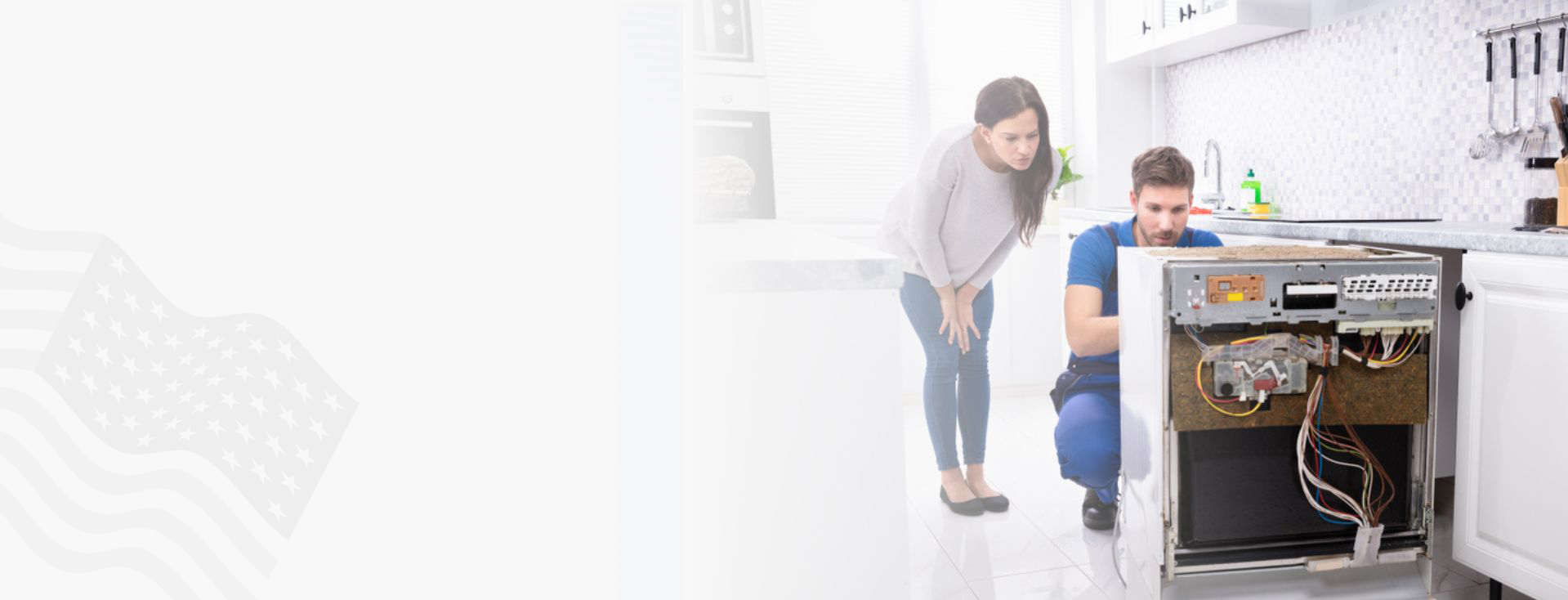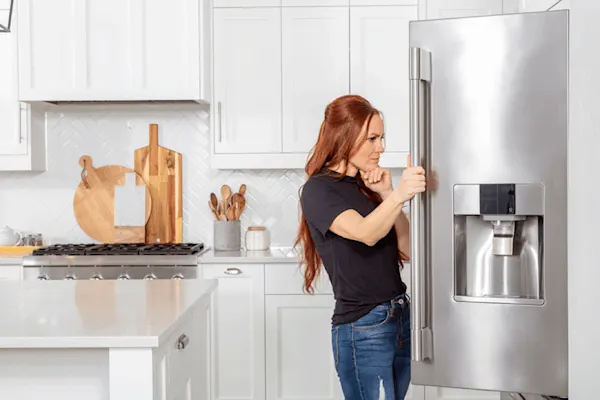Complete DIY Dryer Repair Guide – Dependable Refrigeration & Appliance Repair Service Dryer repair near me
Complete DIY Dryer Repair Guide – Dependable Refrigeration & Appliance Repair Service Dryer repair near me
Blog Article
The Ultimate Guide to Understanding Device Fixing in your home
When your refrigerator stops cooling or your stove refuses to warm, it can really feel overwhelming. Recognizing home appliance fixing in your home can conserve you money and time. You'll find out to recognize signs, utilize important tools, and comply with a methodical troubleshooting procedure. Prior to you start, there are vital safety and security precautions you require to take into account. What are one of the most usual problems, and how can you repair them? Allow's discover the fundamentals.
Typical Home Appliance Issues and Their Symptoms
When your devices start breaking down, it's important to identify the signs at an early stage. Neglecting them can cause bigger issues and expensive repairs. If your refrigerator isn't cooling down appropriately, you might discover cozy places or condensation creating. This could show a stopping working compressor or an obstructed vent.Your dishwasher might reveal issues with unclean recipes or unusual noises throughout cycles. If you listen to grinding or clanking, it's time to investigate.A cleaning equipment that won't spin or drain pipes can leave you with soggy laundry, recommending a stopped up drain or a malfunctioning pump.Lastly, if your oven's temperature appears off or it takes permanently to preheat, you may be dealing with a defective thermostat. By remaining alert to these signs, you can attend to concerns prior to they rise into significant fixings.
Essential Devices for Device Fixing
When you're taking on device repair work at home, having the right tools is essential. Standard hand tools like screwdrivers and pliers will aid you take apart and fix different devices, while electric screening gadgets assure you're functioning safely with wiring. Let's discuss what you require to start on your repair service journey.
Basic Hand Tools
Having the right tools is necessary for efficient home appliance repair in the house. Begin with a dependable screwdriver collection, including both flathead and Phillips kinds, as screws are typical in device assembly. Pliers are additionally crucial; they assist with gripping, twisting, and reducing cords or small parts. A set of needle-nose pliers can reach difficult situations conveniently. You'll require an excellent adjustable wrench for tightening or loosening up nuts and screws. An energy knife comes in handy for puncturing packaging or insulation. Ultimately, do not forget a strong workbench or surface to securely organize your devices and parts. With these fundamental hand devices, you'll be well-prepared to deal with most appliance fixings that come your method.
Electric Testing Instruments
Along with fundamental hand devices, electrical screening devices play a necessary duty in home appliance repair work. These devices help you diagnose electric issues and warranty appliances operate safely. A multimeter is vital; it gauges voltage, present, and resistance, enabling you to determine issues promptly. A non-contact voltage tester is another must-have, allowing you spot real-time cords without making direct contact, enhancing your safety and security. Secure meters are great for gauging present circulation in cords without detaching them, saving you effort and time. Furthermore, circuit testers can promptly check if electrical outlets are working effectively. By utilizing these tools, you'll improve your troubleshooting procedure and boost your fixing skills, making appliance maintenance a lot less complicated.
Step-by-Step Guide to Diagnosing Home Appliance Issues
When your home appliance breaks down, it can be irritating, but diagnosing the concern does not have to be overwhelming. You'll discover to determine common issues and apply reliable troubleshooting techniques. Allow's go through the steps to get your home appliance back in working order.
Typical Device Troubles

Fixing Techniques Described

Repairing Major Kitchen Area Home Appliances: A Closer Look
Have you ever before questioned how to tackle common problems with your kitchen home appliances? Repairing major kitchen area home appliances like fridges, ovens, and dishwashing machines can be easier than you believe. Beginning by identifying the trouble-- whether it's a refrigerator not cooling down or an oven that won't heat up. Frequently, a simple reset or checking the source of power can fix the issue.For refrigerators, tidy the condenser coils and check the door seals. If your stove's not home heating, examine the home heating component and thermostat. Dishwashing machines could simply need a clean filter or a reset to get them back in activity. Always unplug the appliance before diving into repairs to ensure your safety.Don' t forget to speak with the individual guidebook for specific fixing pointers associated with your version. With a bit of persistence and the right devices, you can confidently take on device repair work and save money while doing so!

Troubleshooting Washing Devices: Tips and Techniques
When your washing appliances start acting up, it can really feel overwhelming, but troubleshooting them does not need to be a hassle. Start by inspecting the power supply. Verify the device is plugged in and the electrical outlet is working. Next off, evaluate the door or lid button; a malfunctioning button can protect against the machine from operating.For washers, if it's not rotating, look for unbalanced tons. Redistributing the clothes may solve the issue. If your dryer isn't heating, tidy the lint filter and inspect the vent for blockages.Listen for unusual sounds; they can show a trouble. If your home appliance is dripping, examine the pipes for cracks or loose connections. Record any error codes presented on electronic displays, as they can lead you in determining the problem. Speak with the individual manual for details troubleshooting ideas related to your design.
Safety Preventative Measures to Take During Repairs
Prior to you begin any home appliance fixings, it's important to prioritize safety to prevent crashes or injuries. First, disconnect the home appliance or shut off the breaker to assure no power reaches it while you function. Use insulated devices to minimize the threat of electrical shock. Use safety goggles and handwear covers to protect on your own from sharp edges or debris (Fixes washers and dryers Oro valley Dependable Appliance Repair).Make specific your work space is neat and well-lit, so you can see what you're doing. Maintain kids and pets away from the area to stay clear of disturbances and potential risks. If you're taking care of gas home appliances, be extra mindful; check for leakages before proceeding.Take your time, and don't rush with repair services. If you feel unsure regarding any type of action, it's better to pause and research study than to presume. Following these precautions will help develop a much safer setting for your DIY device repair work project
When to Call an Expert for Aid
Exactly how do you know read more if it's time to hire a professional for home appliance fixings? If you have actually attempted fundamental troubleshooting without success, it's a clear indication. As an example, if your appliance still will not begin or reveals uncommon sounds after resetting it, do not wait to look for specialist help.When you see leaks, smoke, or burning smells, focus on security and call a pro quickly. These issues can bring about even more considerable damage or posture dangers to your home.Also, if your home appliance is under warranty, getting in touch with a professional is often the most effective path. They can guarantee that repairs won't void your warranty, conserving you cash in the lengthy run.Finally, if you're not sure or unpleasant with complex repair work, it's smart to leave it to the professionals. Bear in mind, dealing with challenging problems without the right proficiency can lead to pricey mistakes. Trust fund an expert when in uncertainty!
Often Asked Questions
How Can I Avoid Appliance Problems in the Future?
To prevent device troubles in the future, you should execute normal upkeep, check for wear and tear, clean filters, and stay clear of overloading. Staying proactive will aid prolong their lifespan and maintain them running smoothly.
What Are one of the most Common Do It Yourself Appliance Repair Service Mistakes?
You may ignore security preventative measures, miss troubleshooting steps, or make use of incorrect devices when attempting do it yourself appliance repairs. Rushing the process or neglecting maker standards can cause even more substantial problems and pricey errors. Stay person and notified!
Just how Do I Know if a Part Requirements Substitute?
You can inform if a component requires substitute by checking for uncommon sounds, leakages, or irregular performance. If the device struggles to operate properly or shows visible damage, it's most likely time for a substitute.
Can I Utilize Generic Parts for Device Fixes?
Yes, you can use generic components for device fixings, but identify they're suitable - Dependable Refrigeration & Appliance Repair Service Dryer repair near me. Common parts could conserve you money, but they can influence efficiency or long life, so weigh your choices carefully prior to making a decision
What Service Warranties Cover Home Appliance Repairs?
Many appliance service warranties cover repair services for manufacturing defects, but they typically omit damages from misuse. Examine your service warranty terms very carefully, as some might require utilizing qualified professionals and initial components for protection to stay legitimate.
Report this page